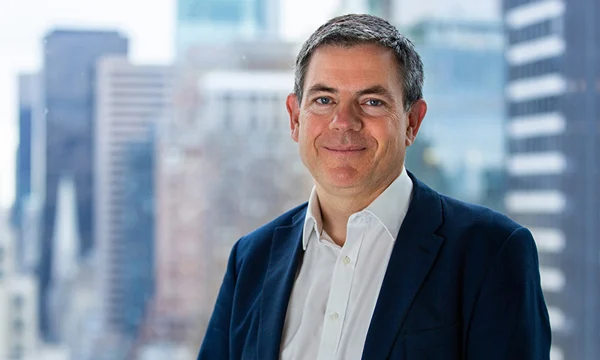Sign up today to get the best of our expert insight in your inbox
The COP30 climate talks are under way In Brazil
What is the point of the conference?
Ed Crooks
Vice Chair Americas and host of Energy Gang podcast

Ed Crooks
Vice Chair Americas and host of Energy Gang podcast
Ed examines the forces shaping the energy industry globally.
Latest articles by Ed
-
Opinion
Are VPPs really a viable solution for easing strain on the grid?
-
Opinion
Data centers are adding an extra 220 gigawatts of electricity demand in the US. How can the grid cope?
-
Opinion
How are energy supply chains changing as electricity demand surges?
-
Opinion
Supply chain constraints limit the growth of gas-fired generation in the US
-
Opinion
A solution to the problem of paying for data centre power?
-
Opinion
The US oil industry is consolidating as growth slows
COP30, which began this week in Belém, Brazil, marks a decade since the Paris Agreement was adopted at COP21 in 2015. It’s being billed as the “implementation COP”: instead of grand new announcements of international agreements, governments are supposed to be focused on delivering on the commitments they have already made.
Host Ed Crooks and regular guest Amy Myers Jaffe welcome back Amy Harder, National Energy Correspondent at Axios. She says not every COP is created equally, and “this is definitely one of those COPs that are more of an ebb than a flow.”
But that said, it doesn’t mean COP30 will inevitably be unproductive. Amy Myers Jaffe, who is the Director of NYU’s Energy, Climate Justice and Sustainability Lab, argues that COP30 “could wind up over time being seen as a more successful meeting than people are currently thinking it will be.”
Instead of a new comprehensive global framework, the objectives for this year’s talks will be a series of smaller-scale sectoral initiatives: scaling sustainable fuels, tackling industrial emissions, protecting forests, and aligning private capital with policy goals.
Energy Gang also welcomes to the show for the first time Lisa Jacobson, who is President of the Business Council for Sustainable Energy. She joins the show from Brazil to give the boots on the ground view as the conference begins. Previous COPs have generally put the mosh emphasis on government action. Lisa says that a focus on what’s good for business might be a better way to spur change. Clean energy technologies are winning in many markets around the world because they make commercial sense. Policy can be helpful, but is it ultimately the business case that has to be what pushes the energy transition forward?
Ed, Amy, Amy and Lisa debate the changes to US energy and climate policy, China’s emissions trajectory, the global impact of EU measures, and how much of the clean energy build-out is now driven by economics rather than politics.
And they wonder whether there is a central paradox in global climate policy. If the future of energy will be decided by market forces and national interests, not by anything that happens at COP30, is that a sign that the series of past COPs has been a success?
We’ve got more coverage of COP30 coming soon, so make sure you’re following us for all the key news and insight from Brazil.
Let us know what you think. We’re on X, at @theenergygang and Bluesky, at @theenergygang.bsky.social.
Got power? At HiTHIUM, we make sure the answer is always YES. Ranked Top 2 globally in battery shipments for 2025.
HiTHIUM delivers safe, reliable, and profitable energy solutions that keep the clean energy transition powering forward. Let green energy benefit all. Trusted worldwide. Built to last.
Reach out and let’s talk energy that works - for good!
Business as usual is over
Introducing the latest insight from our thought leaders, the book Connected: Bringing predictability to the increasingly uncertain world of energy.
As climate change accelerates and geopolitical tensions reshape global markets, the energy landscape has become increasingly interconnected. Connected explores why those interconnections have developed, and how they bring clarity to the most important decisions we make about the future of energy.







